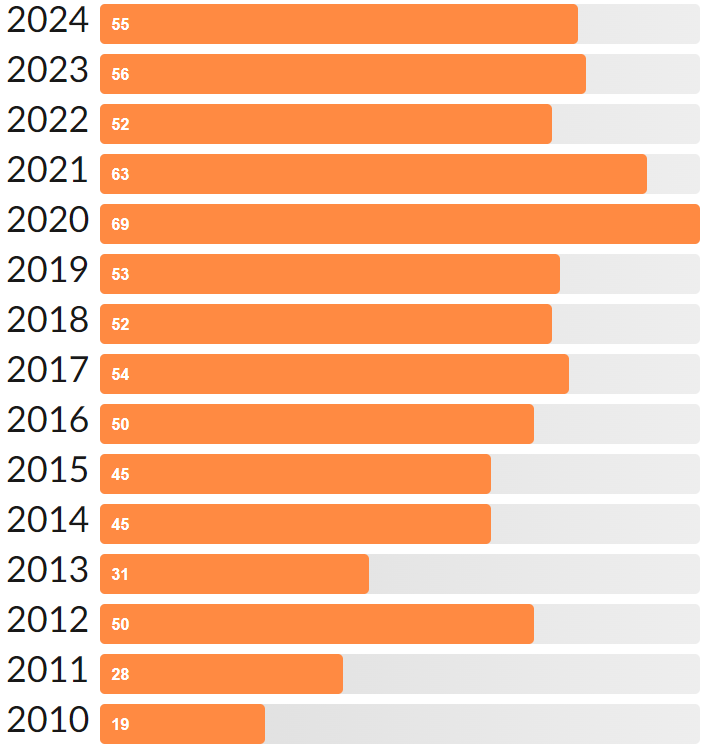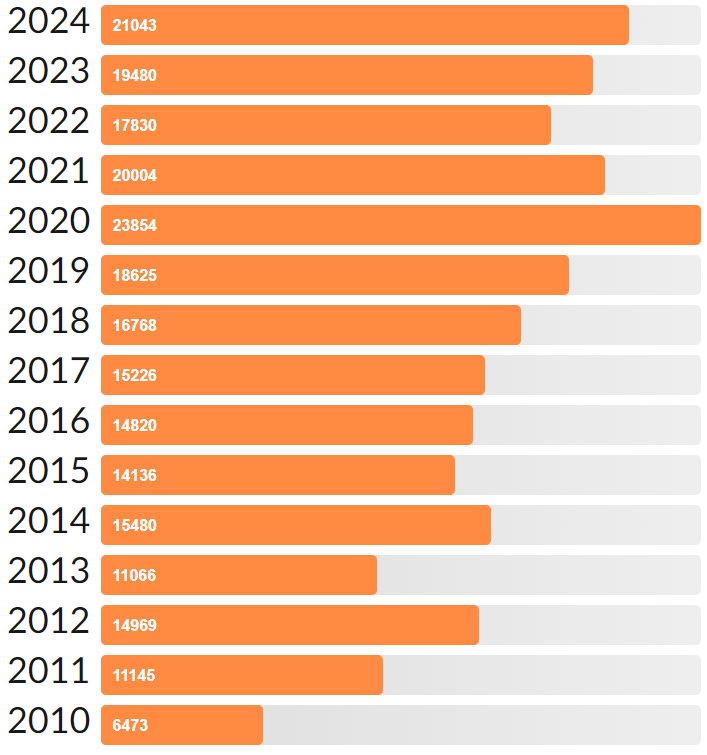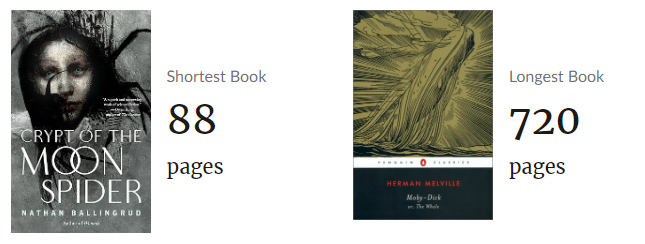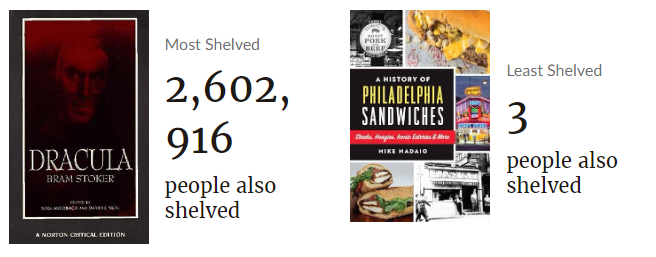In the Northern Hemisphere, the Winter solstice (in 2024, this was on December 21 at 4:21 AM ET) occurs when the North Pole reaches its maximum tilt away from the Sun. This also has the effect of causing the shortest period of daylight and longest night of the year, but it also marks the moment when the days will start to get longer again. This reversal has been culturally significant since pre-history, and there have long been longstanding practices, rituals, and festivals to mark the occasion. It’s usually seen as a time of symbolic death and rebirth or renewal, and as such, it’s often accompanied by reflections on where we’ve been and where we’re going. Given the state of the world (at least, as we tend to perceive it via various forms of media and associated, biased algorithms), such examinations can be a bit weighty, but let’s focus on the positive and less-existentially terrifying aspects of life, like book reading in 2024.
I keep track of my reading at Goodreads (we should be friends there), and they have a bunch of rudimentary statistical visualization tools that give a nice overview of my reading habits over time, especially now that I’ve been logging books there for over a decade. Let’s take a closer look:
Graphing Books and Pages Over Time
I read 55 books in 2024, a teensy bit less than last year’s 56, but still comfortably over my usual annual goal of 52 (i.e. 1 per week). I doubt I’ll ever approach the 2020 pandemic-fueled record of 69 books (nice) again, but I suppose you never know, do you?

You can see the full list of 2024 book reading on Goodreads. Again, pandemic related patterns have mostly disappeared, and there were actually a couple of times where I fell behind pace, but the 6 Weeks of Halloween turned things around and got me ahead.
Average book length was 382 pages, a massive uptick from last year and, actually, every year since I started tracking. The previous record of 356 pages was set in 2013 (a year in which I focused on longer books and saw a corresponding drop in overall number of books). Naturally, this increase corresponds to overall page count for 2024 as well:

Not quite pandemic numbers, but somehow pretty close. I don’t really know what to attribute this uptick to, as I didn’t especially tackle a ton of massive tomes (indeed, the longest book I read was only 720 pages long – certainly not short, but I’ve only had one longest book that was shorter in the last 14 years). I suspect a couple of long running series with books in the 500-600 range that I tackled this year accounted for some of it, as well as engaging in less novella/novelette reading (i.e. not participating in the Hugos).
As always, we must also acknowledge the inherent variability in page numbers, which can be very misleading. Indeed, another thing I noticed in looking at the above charts is that the numbers for previous years are in a bit of flux. When I posted this sort of recap for 2023, Goodreads listed a total page number of 18,888, while you can see in the above graph that it now lists the same books as 19,480 (there are similar fluctuations for most years as well). Regardless, it does seem like I had a good year.
The Extremes


88 pages is obviously not a long book, but it’s probably one of the longer “shortest” books of the year for me (and one of just two short fiction reads tracked this year). As mentioned above, 720 pages is the shortest of the “longest” books of the years I’ve read since 2012. I have to imagine that longest book was also in the running for Most Shelved as well, but Dracula is the most popular book I’ve read since 2017. Least shelved is perhaps not surprising given the limited niche (it’s a History of Philadelphia Sandwiches). I only really knew about it myself because I know the author, but I’d totally recommend it to anyone who likes a good sandwich (particularly hoagies/subs, Italian roast pork, cheesesteaks, and other Italian staples).
Assorted Observations and Thoughts
A few years ago, I read some Shakespeare, which had the effect of ruining Goodreads’ graph of publication dates (it added a ton of whitespace). Last year, I posted a cropped version of the graph, which seems to work well enough, so here we go:

The X Axis is cut off to avoid copious whitespace, but the last two columns are 2024 (click the image to embiggen and see the full, uncropped image).
Of course, there’s still an obvious recency bias, but the overall pattern still had a pleasing mix in 2024.
- Moby Dick, by Herman Melville is officially the oldest book I read last year (and the second oldest since I started tracking on Goodreads), but it’s worth noting that a significant portion of The Portable Edgar Allan Poe (a collection of various Poe writings) was originally published before 1850 (the collection itself was first published by Penguin in 1945, which is where it shows up in the graph)
- Three books published before 1900 (the aforementioned Moby Dick, Dracula, and Treasure Island), which is also a record this year.
- 17 non-fiction books in 2024, a significant increase over last year (which only had 7). This increase was the result of a deliberate strategy, one that I should probably continue in 2025.
- 12 books written by women in 2024, a minor decrease from last year, but probably a bit too low. I don’t normally make conscious effort to control for gender when choosing books (sometimes this results in almost equal distribution, other times… not), but this number is pretty low, so maybe I should.
- 16 books were science-fiction, which is a big decrease from recent years. Some of this is deliberate (i.e. not participating in Hugos, embarking on the Salty Sea Dog Era of reading, etc…)
- My average rating on Goodreads was a 3.7, though I will note that they don’t allow half-star reviews, so I tend to round up to 4 stars for a large proportion of books. Still, this year represents a small decrease in average rating. Is that good? Bad? Who knows!?
So 2024 was yet another good year for book reading. I don’t know how much I’ll consciously change, but probably continue reading more non-fiction and maybe try to sneak a few more women on the queue.
Anywho, stay tuned for the year in Movie Watching next week, followed by the kickoff of the Kaedrin Movie Awards season, starting in mid-January and culminating in the traditional Top 10 list in February (usually just before the Oscars). Depending on timing, I might be able to smuggle a Vintage Science Fiction Month entry as well.